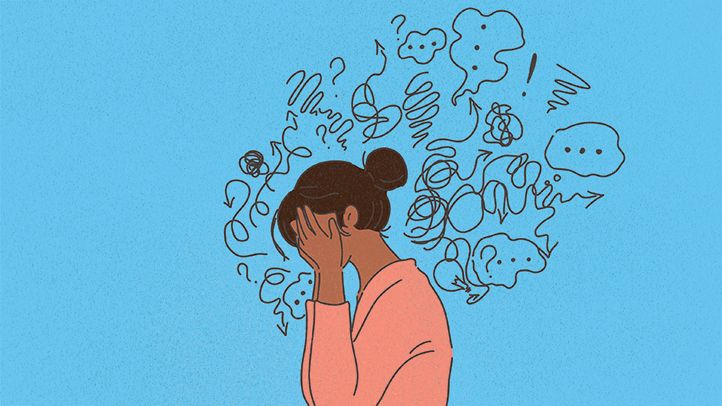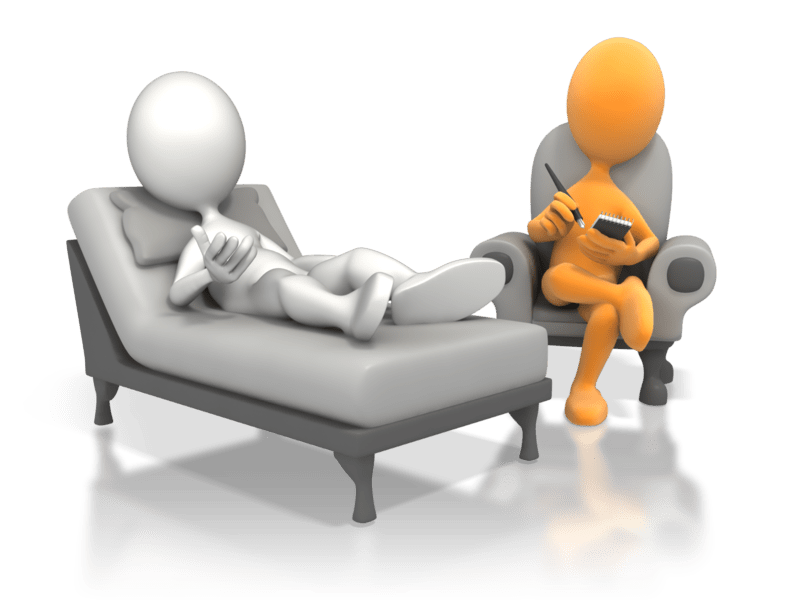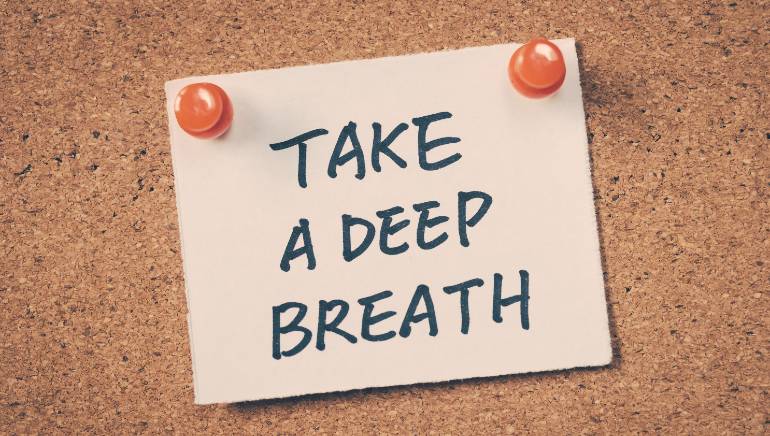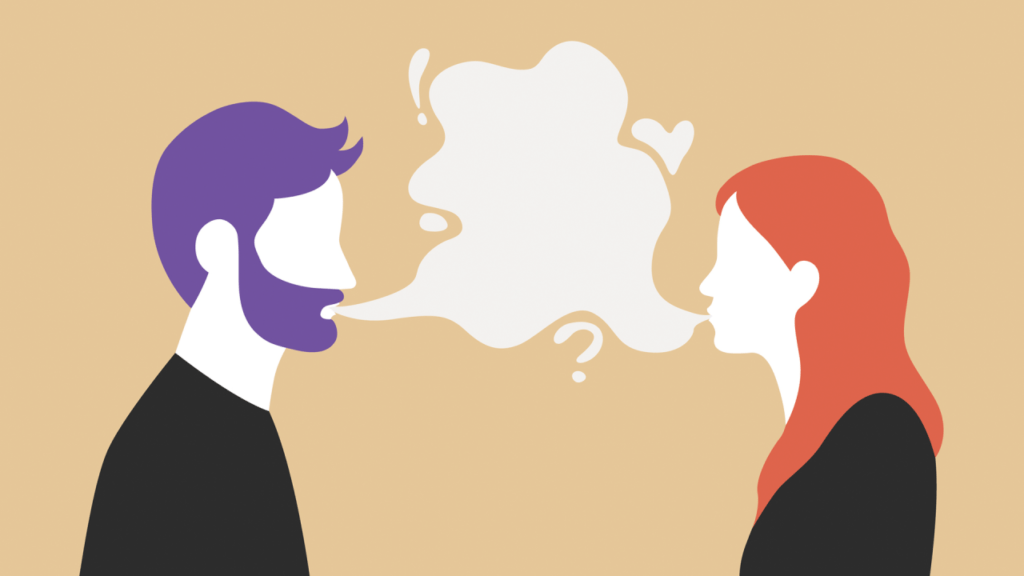Contents
Stress

Any type of event in your life, whether it’s good or bad, can induce stress. It might be induced by anything from a job to family to school to health, and so on. It may be any response, physical, mental, or emotional. The disadvantages of this approach are that it may be difficult to recognize the symptoms and how to cure them. There are many forms of stress, each with its own set of symptoms. It is not always bad; some people find it energizing while others use it as an excuse for avoiding responsibility.
If you believe that your stress level is affecting your physical or mental health, there are actions you can take to alleviate this problem. You may identify what causes stress and how best to cure it by learning about it.
Types of Stress

These are two types of stress:
Acute Stress
Acute stress, unlike chronic stress, does not cause significant damage to the body. It is the most prevalent form of stress. Life-altering events such as marriage, divorce, or even childbirth can induce acute stress. Work can be stressful, especially for those who are out of work – deadlines and tough projects frequently produce short-term health issues. Another example would be if you were mugged on your way to lunch one day; this could lead you to feel anxious walking home that evening because it was an unpleasant experience.
Chronic Stress
Chronic stress has been linked to a number of physical problems. These are including heart disease, gastrointestinal issues, respiratory diseases, and mental illnesses such as depression and anxiety. It’s critical not just to understand how much our bodies have changed owing to the digital era, but also to consider carefully our behaviors. These can be in response to the events that occur around us. It is a result of continued problems in life. These are such as financial hardship, unemployment, or chronic illness. The most common chronic diseases linked to long-term stress are heart disease and depression.
Symptoms of Stress
Symptoms of stress vary from person to person, but there are several typical indicators that can help you determine if you’re under too much strain. The following are some examples of these symptoms:
- Frequent Changes in Mood:
 People who are under a lot of stress may become irritable and angry for no apparent reason. This is frequently associated with anxious feelings, such as restlessness or difficulty focusing.
People who are under a lot of stress may become irritable and angry for no apparent reason. This is frequently associated with anxious feelings, such as restlessness or difficulty focusing. - Problems in Decisions: Excess stress can make even basic daily activities, such as selecting what to have for dinner, difficult.
- Difficulty In Eating: When people are stressed, it’s typical to observe an increase or a decrease in appetite. They either start eating a lot or stop eating altogether.

- Difficulty In Sleeping: Insomnia is frequently caused by stress and anxiety over matters that took place during the day.
- Difficulty in Concentrating: People are unable to concentrate on the job at hand owing to stress, which might have a negative impact on their performance.
- The problem in Communication: Feelings of stress frequently lead to a person pulling away from their friends and family. This can have a detrimental influence on personal relationships as well.
- Excessive Pain: Stress puts a strain on the body, which might result in headaches or discomfort.
Causes of Stress
These are some of the Causes of Stress:
Insomnia

If you don’t get enough sleep each night, it’s possible that you’ll have to take more of it in your life. If at all feasible, go to bed earlier to establish healthier sleeping habits overall.
Personal Life Problems
There are times when you just can’t control something. If they’re stressing you, it’s probably time to seek assistance or take action.
Work Pressure
This can be a major reason for a lot of individuals. Working too much may induce stress and the sense that there is not enough time for oneself, making it much worse.
Problems In Family

It’s a common occurrence in most families. This is why so many couples split up. This is because they are unable to satisfy the demands and needs of their respective families.
Career Problems
Jobs might be stressful. Whether you feel like your current employment isn’t as gratifying as it should be, or if the firm is undergoing some changes and everything appears unstable. This can induce a lot of worries.
Non-Supportive Friends
Do you ever experience a time when everyone else around you doesn’t seem to be on board? While we may believe they are supposed to be there for us no matter what, their views on our choices aren’t always useful. This can add to someone’s distress.
Uncertainty In Actions
This one is more applicable in everyday life than at the workplace. Not knowing what’s ahead for you tomorrow, whether it’s at school or not (i.e., meeting new people), can be a bummer.
After-Effects of Stress
It’s critical to note that stress has a significant impact on our mental and physical health. The following are some of the symptoms that can result from stress:
Anxiety And Depression

Excessive levels of worry about events that may occur in the future are frequently to blame. Remember that if you’re feeling nervous more often than usual, it’s likely due to increased amounts of tension. People who have depression have a reduced ability to deal with daily problems because of their low spirits, etc. They have higher rates of anxiety as well.
Heart Palpitations
Chronic stress can cause an increase in the risk of heart disease, as well as chest discomfort and skipped or irregular heartbeats.
Headaches

Muscle tightness in the neck, back, and shoulders might result from chronic stress. Headaches, among other things.
Stomach Issues
Stress has long been recognized as a cause of stomach difficulties, including abdominal pain or cramps. It might also induce irritable bowel syndrome, where a person experiences severe diarrhea among other things.
Loss of Interest In Sex
Your body produces cortisol when you’re stressed, which decreases testosterone levels and causes a loss of interest in sex.
Obesity

This might be caused by stress-eating. When you’re worried and anxious, your body produces cortisol, which causes you to want junk food and other unhealthy meals.
Diagnosis of Stress

Stress is a natural part of life, and it can actually be beneficial since it motivates you to achieve your objectives, yet long-term high stress might result in health issues such as anxiety or depression. It’s all about finding the right balance between adequate pressure (acute) and rest for our bodies and minds. This way, you will be happier, more productive at work or school, and have a higher quality of life overall! Working under demanding circumstances—such as late nights, weekends, and so on—often leads to even more tension.
Symptoms of stress disorder can develop after a traumatic experience. It’s critical that you talk to your doctor about treatment options, which might include lifestyle modifications as well as medicines. The first step toward diagnosis is doing some research into what areas need to be improved in one’s life. This is so that you may learn how to not only improve your quality of life.
The doctor may discover it by asking you about your life, physical symptoms, and how you manage them. Certain tests can help rule out other illnesses while determining whether or not you are at risk for stress.
Treatment of Stress
Depending on your symptoms and underlying cause, following the diagnosis, Doctors may recommend various lifestyle modifications such as specific drugs or alternative types of therapy. There are a few strategies for reducing stress:
Medications

Some individuals discover that prescription drugs assist them with their stress. If you’re looking for a way to manage your stress, talk to your doctor about whether or not the medication is the best option for you. Medications include a class of drugs called benzodiazepines, which help to control anxiety.
Therapy Or Counseling

It’s also typical for individuals to get assistance from counselors who can offer suggestions, direction, and support throughout the process. There are several types of therapies that may be beneficial for individuals who are having trouble managing their emotions. Cognitive Behavioral Therapy (CBT), Dialectical Behavior Therapy (DBT), and Mindfulness-Based Stress Reduction are examples of this. These types of treatments are usually to treat specific kinds of stress. These are such as post-traumatic stress disorder (PTSD), panic disorder, and social anxiety.
Techniques of Stress Management
Here are some Stress Management Techniques:
Regular Exercise

Regular exercise is one of the most essential actions you can do to reduce stress. It produces endorphins and increases happiness by providing energy throughout the day. Yoga, jogging, or Zumba are a few examples. Make certain it’s something enjoyable so that you’ll want to participate! Every day, aim for at least 30 minutes of activity but don’t go more than an hour without stopping.
Good Food

Eating a nutritious diet is one of the most vital things you can do to reduce stress! Make sure you’re getting enough protein, vitamins, and minerals. It’s also important that you stay hydrated by drinking water or other non-caffeinated beverages regularly throughout the day. Black tea, green tea, and coconut water are all wonderful choices.
Good Sleep
This is yet another thing that can help your body function properly! When we don’t get enough sleep, it has an impact on our memory, mood, and energy levels. It’s also been proven to have an effect on body weight, which means you’ll have a higher chance of being overweight or obese.
Deep Breathing

Breathing exercises are effective tools for managing stress. Deep breathing stimulates the vagus nerve, which is connected to several important organs in our body including the heart and lungs. This can help lower blood pressure levels as well as reduce anxiety.
Set Goals
Setting goals is a wonderful way to maintain control over your life, even if it’s just something small! For example, you might want to set an intention that by tomorrow morning you’ll wake up half an hour earlier than usual. It is so that you have extra time before starting your day. It sounds simple but will give you more control over how fast or slow things progress during the next 24 hours.
Communicate Your Problems

Talking about your problems with someone you trust can be very beneficial. Don’t try to hold in your feelings or suffer by yourself when it’s something much easier for two people to manage! Find a person who will support and encourage you, not one who constantly tells you that “everything will work out fine.”
Conclusion
Stress is a common occurrence in today’s world. It might lead to anxiety, sadness, and health issues such as heart disease or high blood pressure. It is why it’s critical to control your stress levels in order to live a happier life. There are a variety of methods for reducing strain on your life by managing the things that cause you stress. It may take some time, but making these tiny adjustments can help you enjoy a greater quality of life over time while also lowering any risk factors linked with chronic stress situations.
For more information, please contact MantraCare. Stress can have both physical and mental effects on the body, leading to negative consequences such as anxiety, depression, and even physical illnesses. If you have any queries regarding Online Stress Counseling experienced therapists at MantraCare can help: Book a trial Stress therapy session

 People who are under a lot of stress may become irritable and angry for no apparent reason. This is frequently associated with anxious feelings, such as restlessness or difficulty focusing.
People who are under a lot of stress may become irritable and angry for no apparent reason. This is frequently associated with anxious feelings, such as restlessness or difficulty focusing.
